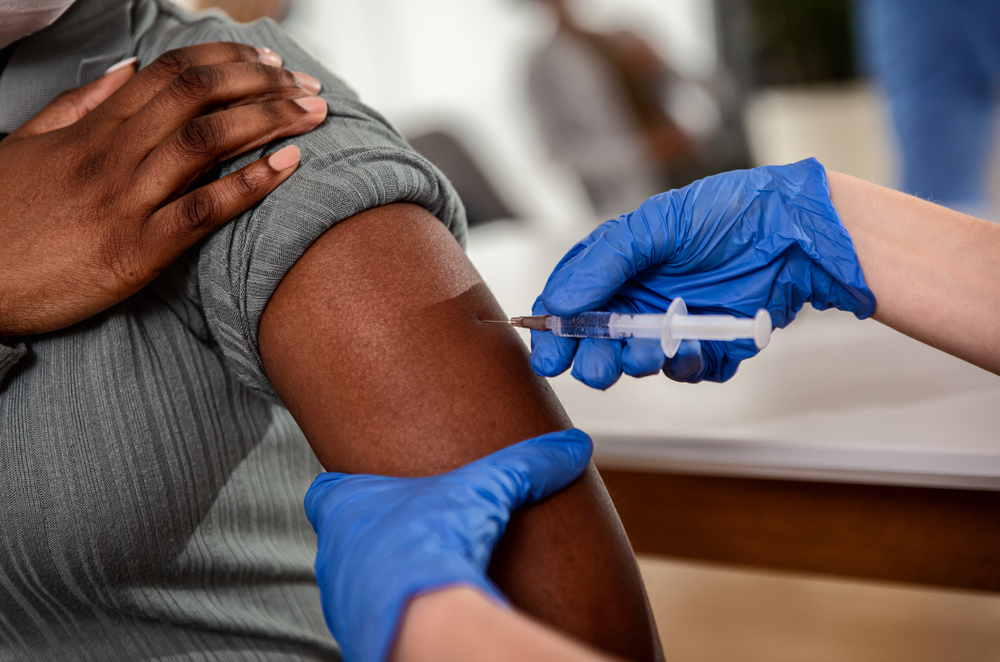NHS Winter pressures could be addressed by research harnessing big data, machine learning and artificial intelligence
22 January 2023
New research launched by HDR UK and funded by NIHR will use data-driven approaches to pin-point pressures in the health care system, understand their causes and develop ways to overcome or avoid them.
Patients could be set to benefit from a programme of rapid research projects to examine how to ease winter pressures faced by the NHS.
The studies, which include projects aiming to help reduce ambulance wait times and understand the effects of cold homes on health, have been launched by Health Data Research UK (HDR UK) with funding from the National Institute for Health and Care Research (NIHR).
The 16 projects cover a range of data-driven approaches to pin-point pressures in the health care system, understand their causes and develop ways to overcome or avoid them. They apply lessons from the pandemic on how to drive rapid-response research that generate results fast and have a direct impact on health policy and clinical care.
The projects include studies aiming to ease pressures on emergency services by using hospital data to speed up patient flow through and out of emergency departments, as well as a project using an analysis approach called ‘machine learning’ to predict peaks of infection with the common bug, Respiratory Syncytial Virus (RSV), that can cause serious illness in young children and put pressure on paediatric intensive care units.
Other projects will investigate the impact of cold and damp homes on people’s health with the aim of informing policies to protect the most vulnerable and avoid knock-on impacts on the NHS.
Professor Cathie Sudlow, Chief Scientist at HDR UK – the UK’s institute for health data science, which is delivering the projects – said:
“As a doctor who has previously treated patients in the emergency department, I am all too aware of the enormous challenges faced by the healthcare system this winter. It’s critical that we use data rapidly, securely and responsibly to support the NHS, its workers, and the patients who rely on it for their care.
“By using existing data, research teams, and infrastructure these projects are able to respond rapidly to evolving pressures on the NHS. Within three months, they will have honed in on key pain points in the health service, and developed evidence-led recommendations on how best to manage resources and prevent unnecessary illness through the winter.”
Each project is designed to generate findings in just a few months so that they can be implemented for future winters. After being selected in December 2022, the studies will start in January, produce results by the end of March, and publish their findings later this year.
The research is possible thanks to the improved health data infrastructure that was developed during the COVID-19 pandemic, partly led by HDR UK with the support of UKRI and partners across the sector, to enable access to data faster, more securely and at a greater scale than has been previously possible.
Dr Martin Chapman, from King’s College London, is leading on a project to understand the impact of the cost-of-living on public health and NHS capacity. He says:
“There isn’t enough emphasis placed on the impact of the health of children and young people on the NHS during winter. Living in cold, damp and mouldy homes leads to chest conditions in children and mental health problems in adolescents, and rising energy costs mean more people than ever are living with heat poverty.
“We’re investigating the effectiveness of interventions like support for energy bills on the health of young people by using Artificial Intelligence to digitally mimic their household environments and evaluate the impact of simulated interventions. This will help guide future policy changes to improve health conditions, reduce inequalities, and in turn reduce pressures on NHS services.”
Dr Mary De Silva, Deputy Chief Scientific Advisor at the Department for Health and Social Care (DHSC) which sponsored the projects, said:
“Research plays a key role in helping us predict and understand the pressures our health and social care services face. Winter is an especially busy time for the NHS, and these projects aim to harness the power of routinely collected healthcare data to understand what is causing the pressures, and crucially to provide new solutions that can be swiftly turned into working practice.
“We’re also testing new methods of funding and managing research, learning from how we rapidly delivered research results which saved lives during the pandemic. For these projects, it was just three weeks from launching the call for proposals to awarding the grants. Every project is ‘buddied up’ with Government analysts working in the DHSC, the Office for National Statistics and the UK Health Security Agency, to ensure that the results feed immediately into policy and practice.”
Several projects, like Professor Elizabeth Sapey’s, Director of PIONEER which is the UK’s health data research hub for acute care, tackle backlogs faced by emergency care departments which can leave patients in considerable distress while they wait for care. She says:
“Same Day Emergency Care (SDEC) has been proposed as a model of care to reduce hospital backlogs, where patients who need emergency care can be reviewed and treated without admission to a hospital bed.
“Selecting the right patients for Same Day Emergency Care is crucial, but the current systems to do so have been developed mainly on rural populations of White males and are unable to accurately select appropriate patients from diverse, urban populations.
“Our work will involve applying machine learning techniques to highly detailed hospital data from a diverse population to develop a better model to identify patients for Same Day Emergency Care, ultimately reducing inequalities in care and relieving pressure on emergency services.”
Health and Social Care Secretary Steve Barclay said:
“We are harnessing the spirit of innovation that delivered the COVID vaccine rollout to promote cutting-edge research aimed at tackling the winter pressures on our NHS.
“Backed by £800,000 of government funding, these pioneering projects will rapidly collate data and use the latest analysis techniques to find ways of reducing hospital stays, preventing illness and freeing up staff time.
“We’re already taking immediate action to ease pressures on health services, including investing an additional £200 million to get medically fit patients out of hospital quicker.
“We are also spending £50 million to ease congestion in hospital emergency departments by expanding discharge lounges, where patients can relax while waiting for relatives or friends to take them home, and ambulance hubs.
“Those sums come on top of the £500 million Discharge Fund announced in the Chancellor’s Autumn Statement for cutting bed occupancy, reducing ambulance handover times and increasing capacity in social care.”
Full list of funded projects
- Early and safe identification of the right bed for the right patient on exiting an Emergency Department setting
- Machine learning to forecast the peak and magnitude of winter healthcare pressures due to respiratory syncytial virus
- Improving patient flows through acute medical departments through better patient selection for Same Day Emergency Care
- Using rare disease phenotype models to identify people at risk of COVID-19 related adverse outcome
- Understanding demand for emergency care using regional routine data from emergency department and acute hospital admissions
- Which combinations of Multiple Long-Term Conditions (MLTC) are associated with the greatest risk of hospital admission over the winter season, and to what extent does COVID-19 or influenza vaccination modify this risk
- Improving characterisation, prediction and intervention for COVID- and influenza-related morbidity and mortality
- DS4SmartDischarge: Data Science Informing Complex Discharge Winter Policy
- Describing, characterising and predicting winter respiratory accident and emergency attendances, hospital and intensive care unit admissions and deaths
- Predicting Hospital Length of Stay in Acute Respiratory Infections Patients (PHLOSARIP)
- DIAPHRAM Data Intensive Action on Winter Pressures through Healthcare Resourcing and Access in Cheshire & Merseyside – Focused on Children, Social Prescribing and Telecare
- Identifying groups at high risk of hospitalisation and death during the winter
- Comparison of risk factors for hospitalizations and death from winter infections
- Data science for winter pressures in primary care in the context of COVID-19 recovery: using data to detect local problems, mitigate risk, and understand the impact on patient outcomes
- Using AI to understand how preventative interventions can improve the health of children in the UK and reduce winter pressures on the NHS
- SIREN Winter Pressure Study



